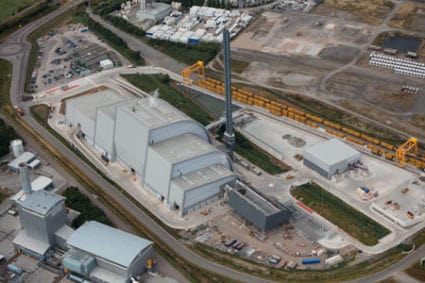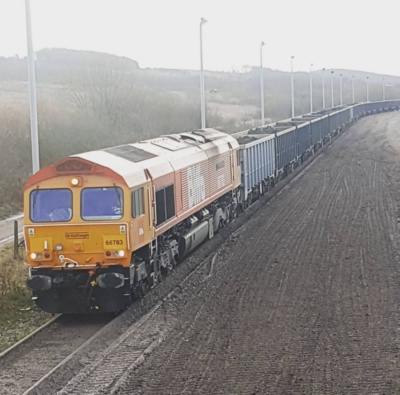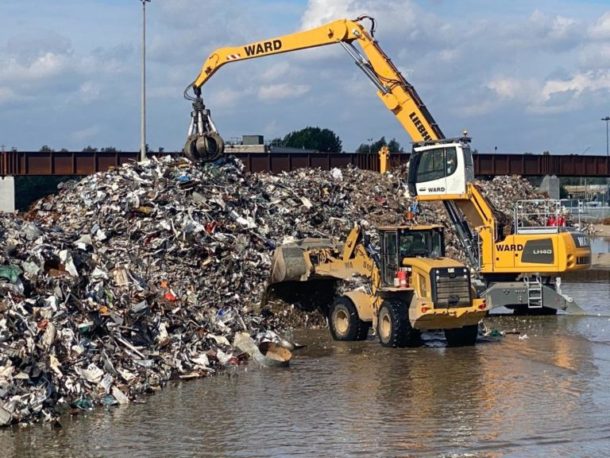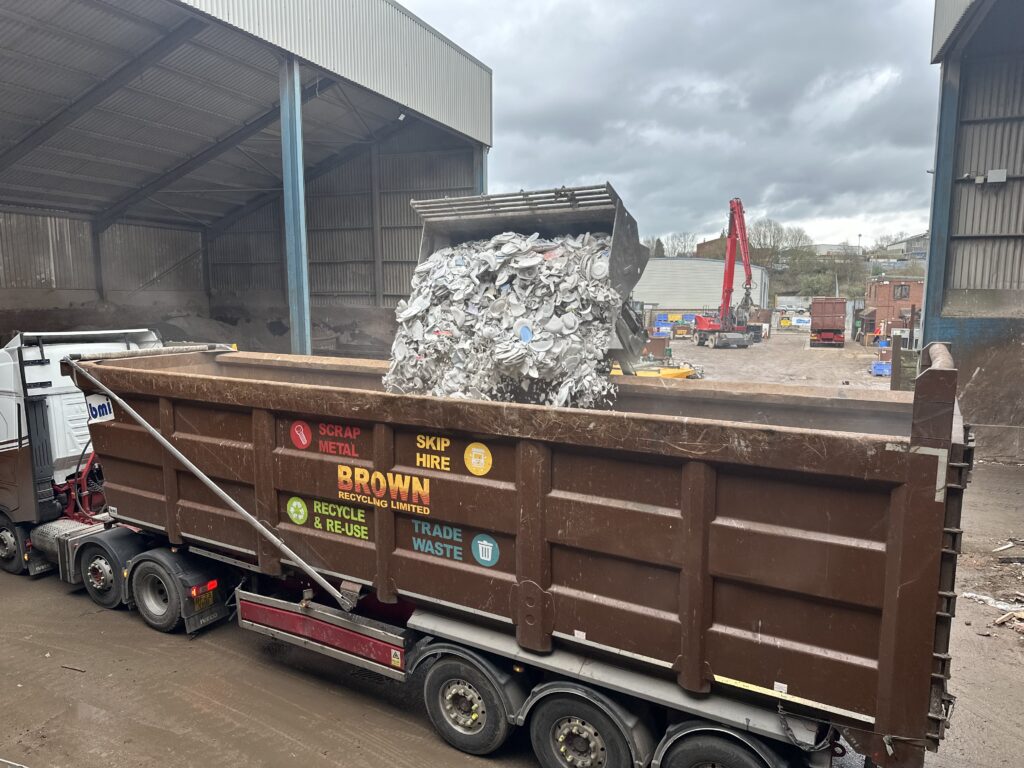There are concerns over the potential for “massive disruption” although contingency plans are said to be in place.
Looking to ease fears of waste piling up at transfer stations, some in the sector have said that those with “mature” contracts for rail transport already have good contingency plans in place due to the “general unreliability” of the rail network. These would most likely see waste go to local landfills instead.
Talks
The RMT Union, revealed on May 24 that there had been a vote in favour of action. The union said it was now “demanding urgent talks with Network Rail and and 15 train operating companies” to seek better terms.
Strike action could start in June or July and freight trains carrying waste or recyclables could be caught up in what is being described as a ‘Summer of Discontent’ in wake of the vote .
Waste
The rail network is important for many aspects of the waste transport system. It is used for the transport of scrap metal and biomass and for the movement of residual waste by companies including Biffa and Suez. The trade association for the waste management sector, the Environmental Services Association, has said it is monitoring the situation.

West London
In West London, over 1,000 tonnes of residual waste from the London boroughs of Brent, Ealing, Harrow, Hillingdon, Hounslow and Richmond-upon-Thames is transported daily to the Severnside Energy Recovery Centre (SERC) located beside the river Severn, just north of Bristol.
This is part of a contract with Suez, which said it is working to minimise any potential disruption
A spokesperson for SUEZ said: “We understand the importance of providing a reliable and efficient service for our customers and have contingency arrangements that we can implement in instances where rail transport is disrupted or unavailable, such as storms, accidents, and strikes. This allows us to minimise disruption to services.”
We are closely monitoring the national rail strike situation
– Carl Beer, Merseyside Waste Disposal Authority
Merseyside
On Merseyside, Suez also developed a rail transfer loading station in Knowsley. From here, approximately 420,000 tonnes of residual waste is transported under a contract for the Merseyside Waste Disposal Authority (MWDA). The majority is transported by rail.
Carl Beer, chief executive of Merseyside Recycling & Waste Authority, said: “We are closely monitoring the national rail strike situation and its potential impact on waste management services in the Liverpool City Region. Our contract with Suez has contingency and continuity arrangements which are implemented in situations such as rail disruption and strikes, and we are working through the situation with them to ensure any disruption to the service that may arise is minimised through the deployment of this contingency plan.”
Biffa

Biffa is also understood to be monitoring the situation as it is also a large player in the transport of waste by rail.
It opened a “transport hub” in East London last year. This linked waste sites in the capital with the waste management company’s landfill sites in the north by rail (see letsrecycle.com story).
The Renwick Road site in Barking is run in partnership with freight company GB Railfreight and enables the transport of 250,000 tonnes of waste from London.
Biffa already works with GB Railfreight by connecting the cities of Manchester and Leeds with Biffa’s landfill facility in Roxby, near Scunthorpe.
These two strategic rail links alone facilitate the transportation of about 250,000 tonnes of inactive waste annually which, estimates the company, is equivalent to some 16,000 truck journeys. Combined, this could be around 500,000 tonnes of annually facing disruption.
Metals
A number of metal businesses use rail as a method of moving material.
European Metals Recycling confirmed to letsrecycle.com that the use of rail was important to its business, particularly in helping to decarbonise its transport usage. However, a spokesperson, said that currently it would not be commenting on matters relating to any disruption.
EMR uses two sets of railway wagons that are known as MBAs (or Monster Boxes). Each set includes 18 wagons with an individual capacity of 84 cubic meters and a potential payload of 72 tonnes. This means that each train EMR runs has a carrying capacity of around 1,300 tonnes.
Another metals recycling business using rail is Ward Recycling. As part of its plans to become carbon neutral by 2040, the company expanded its rail network in recent years.

Donald Ward, operations director at Ward, said: “As a nationwide metal recycling and waste management specialist, Ward processes over one million tonnes of waste annually, around 80% of this is recycled metals. With our processing facilities at Ilkeston, Chesterfield, Immingham, Redcar and Barking we rely heavily on the rail network to transport bulk materials from our sites.
“Each freight train we use removes the equivalent of more than 40 trucks from the road transport network, contributing to our sustainability goals as well as reducing HGV traffic on local roads .
“Any proposed rail strike this summer will further hit an already troubled supply chain hard and cause massive disruption across all industries from steel manufacturing to construction. It will significantly impact the metal recycling sector as there are a number of operators such as ourselves who rely on the network to link together our supply chains. We are looking at solutions to minimise disruption as much as possible.”
Outlook
All eyes will now be on discussions between the unions, seeking an 11% pay rise, and Network Rail, which is looking to “modernise” the network.
The importance of freight for rail is clear in the latest statistics for the amount of waste material and recyclables moved by rail.
For quarter two of 2021/22 (July-September 2021) the Office of Rail and Road (ORR) reports an overall increase of 10% compared to the year before in the use of rail for all materials.
The increase is largely down to an economic revival after the worst of the pandemic. Metals movement (including iron ore) was up 12.6% in the quarter. Waste comes in to the ‘Other’ category of freight data. The ORR reported that in this category volumes were 14.2% higher than in 2020 and 10.3% higher than in 2019 with “a rise in domestic waste” contributing to this. And the ORR also noted that there is a “continued demand for biomass”.











Subscribe for free